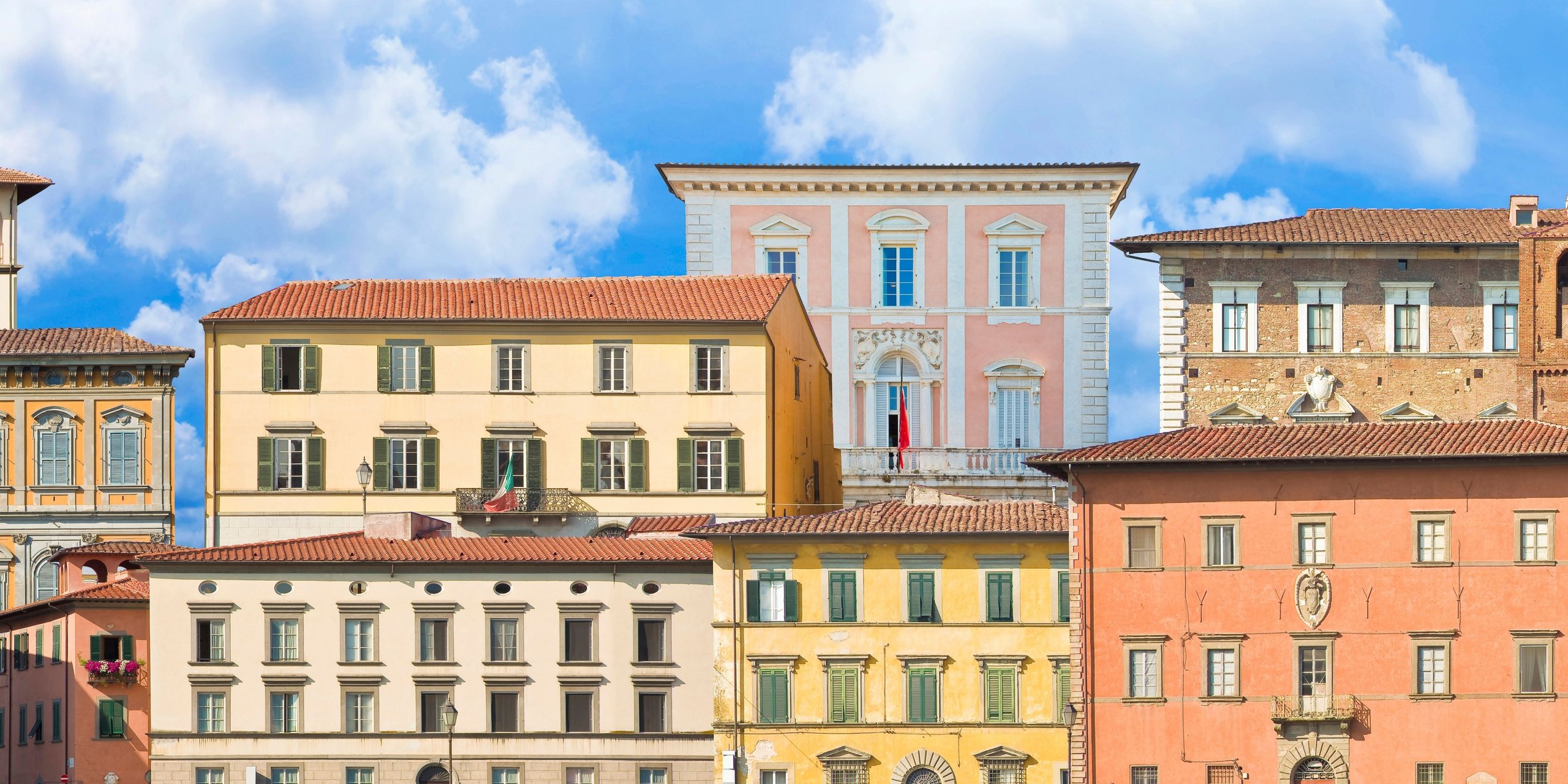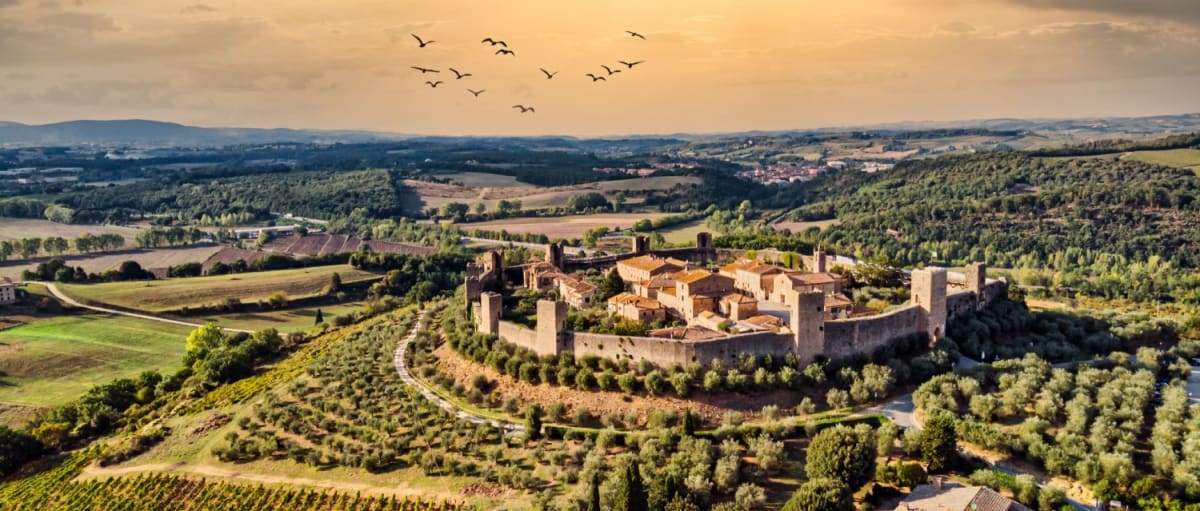Buying a home in Italy isn’t just about the asking price – it comes with a number of additional costs. Here’s what you’ll need to budget for, from taxes and legal fees to notary costs and estate agent commissions.
If you’ve been house-hunting in Italy, you’ll have noticed that property prices can be surprisingly affordable – especially if you’re looking in rural areas or smaller towns. But before you make an offer, it’s crucial to understand the true cost of buying a home here.
From notary fees to taxes and legal checks, there are several additional costs that add up. In this guide, we’ll explain what those costs are, how much you should expect to pay, and when those payments are typically due.
Contents
Upfront costs and fees
You’ll need to pay most of the major expenses during or shortly after the sale process, so it’s essential to have these funds available up front.
Purchase price
This is the agreed price of the property, but it’s worth noting that buyers often pay based on the “cadastral value” (a government-assessed value), rather than the market value. This can sometimes work out in your favour when it comes to tax.

Notary fees (1–3%)
The notary (notaio) plays a key role in the Italian buying process. They handle the legal transfer of ownership, verify the identities of the parties, ensure all legal requirements are met and register the deed with the land registry. Fees vary depending on the complexity of the transaction and the value of the property, but generally range from 1% to 3% of the property’s declared value.
Registration tax (2%–9%)
This is a key tax you’ll need to budget for. The amount depends on whether the property is classed as a “primary residence” (your main home) or a second home
2% if it’s your first home in Italy and you take up residency within 18 months
9% if it’s a second home or you’re not becoming a resident
The tax is calculated on the cadastral value, not the market price, which can result in a lower bill.
VAT (IVA) – only for new-builds
If you’re buying from a developer and the property is less than five years old, VAT applies instead of registration tax. Expect to pay 4% for a primary residence, or 10% for a second home. For luxury properties (A1, A8 or A9 cadastral categories), VAT is 22%.
Land registry and cadastral taxes (€100–€200 total)
These are fixed charges related to registering the sale and updating the property’s cadastral records.
Legal fees (1%–2%)
Although hiring a lawyer isn’t legally required, it’s highly recommended – especially if you’re buying remotely or need help understanding the documents. Legal fees for simple cases typically range from 1% to 2% of the purchase price. However, for more complex cases or for luxury property you could be looking at more. For example, if planning to rent out your property you may ask your lawyer to ensure you comply with all the latest rental rules in Italy.
Estate agent commission (3%–5%)
In Italy, it’s common for both buyer and seller to pay a commission. The buyer’s side usually falls between 3% and 5% of the sale price, plus VAT at 22%. Make sure to confirm the exact amount before making an offer.
Mortgage costs (1%)
If buying with a mortgage there will be arrangement and mortgage registration fees. These are likely to add another 1% or more, plus potential valuation charges.
Translator or interpreter fees (if needed)
If you don’t speak Italian fluently, you may need to pay for a sworn translator to attend the final deed signing. Costs can vary, but typically start from €250.
Survey or inspection (optional but wise)
A structural survey isn’t mandatory, but highly advisable, particularly for older properties. Expect to pay around €300–€1,500 depending on the type and size of the property.
Budgeting for property purchase
Typical costs when buying property in Italy
Estimated ranges for common fees and taxes. Figures are indicative — actual costs vary by property, region and buyer status.
| Cost item | What to expect |
|---|---|
| Notary fees | Typically around 1%–3% of the property value for standard transactions; higher in complex cases |
| Registration tax (imposta di registro) | Usually 9% for non‑resident second homes (calculated on the cadastral value); different rules apply for prima casa and special cases |
| Legal fees (optional) | Commonly 1%–2% of the purchase price for a buyer’s lawyer or legal checks |
| Estate agent fees | Typically 3%–5% of the sale price plus 22% VAT (split between buyer and seller in some deals) |
| Land registry & cadastral | Small administrative charges, usually around €100–€200 in total |
| Translator / interpreter | If required, expect from about €250 depending on length and complexity |
| Survey / technical inspection | Optional but recommended: roughly €300–€1,500 depending on size and property type |
| VAT (new-builds only) | Applies to some new properties: 4%, 10% or 22% depending on buyer status and property classification |
Typical total additional costs (excluding renovation): 7%–15%.
However, it is not beyond the bounds of possibility that you could be paying as much as 20%
For mortgages, expect extra fees such as valuation and registration (often ~1% of loan)
Keep in mind that these are indicative figures. Some costs, like legal or agency fees, can often be negotiated – particularly if you’re working with a bilingual lawyer or buying without a mortgage.
When are these costs paid?
The deposit (usually 10%) is paid upon signing the preliminary contract (compromesso)
The remainder of the purchase price, taxes and notary fees are paid on completion (rogito
Legal and agency fees are often split between the preliminary and final contract dates
Exchange rates when buying property in Italy
When buying property in Italy, the price is agreed in euros. But for overseas buyers, the money often comes from pounds or dollars. This means your final cost is affected not just by the property price, but by movements in the exchange rate between agreeing the deal and completing the purchase.
Property transactions in Italy can take several months to complete. During that time, even small shifts in the exchange rate can have a significant impact on your budget. A change of just a few cents could add thousands to the cost of your property, particularly for higher-value purchases.
This is why many buyers choose to work with a specialist provider such as Smart Currency Exchange. Once you have committed to a purchase price in euros, Smart Currency can help you lock in an exchange rate in advance using tools such as forward contracts. This gives you certainty over costs and protects you from unfavourable market movements while your purchase progresses.
By planning currency transfers early — including deposits, completion funds and any renovation costs — buyers can budget more accurately, reduce financial stress and move forward with greater confidence.
Costs of buying in Italy FAQ
Yes. Most transactions must be carried out in euros via an Italian bank account. You’ll also need one to set up utilities, pay taxes and cover ongoing costs.
Yes – if you’re transferring funds from abroad, using a currency exchange service can protect your budget from exchange rate swings and hidden bank fees. You can fix a rate in advance and avoid any nasty surprises.
Yes. In the months between legally committing to buying and actually paying, the exchange rate is likely to change. That can drastically add to the cost of buying property in Italy at the worst possible time. With Smart Currency Exchange you can can lock in your exchange rate as soon as you commit, meaning no nasty surprises.
Understanding the cost of buying in Italy is key to making a confident, informed purchase. It’s not just about getting a great property – it’s about making sure you’re financially prepared at every stage of the process.
Sources:
Agenzia delle Entrate – https://www.agenziaentrate.gov.it
Notariato – https://www.notariato.it
Nomisma Market Report – https://www.nomisma.it/









